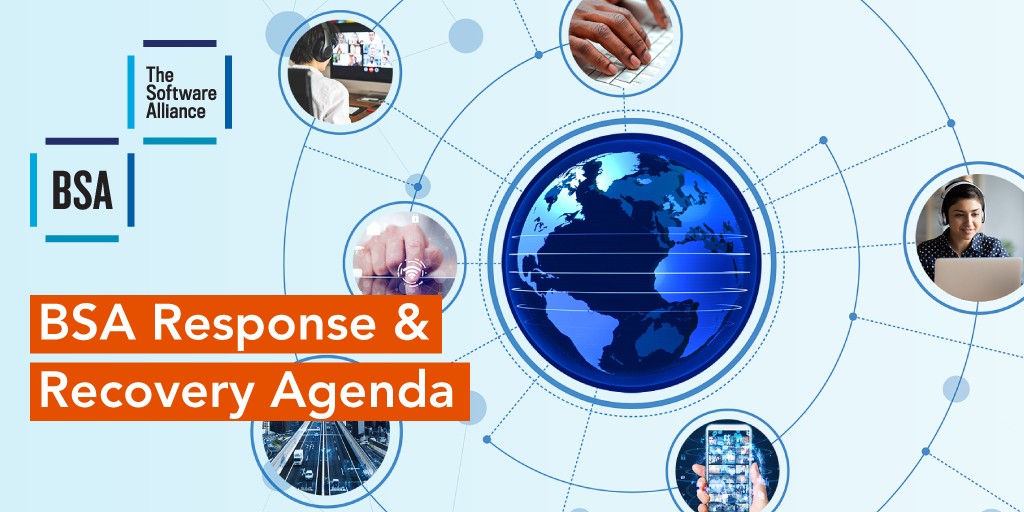COVID-19 has created a massive disruption in the workplaces and homes of millions of people around the world. In the past few months, many aspects of people’s personal and professional lives have moved online, driving the rapid expansion of remote working and online collaboration.
To meet the needs of our rapidly evolving economy, policymakers must act now to respond to current demands and pave the way to a more agile and connected future. This transition calls for strategic initiatives that foster a strong remote economy, maximize public health and safety, and maintain the services that people depend on to work and live.
To address the opportunities and challenges of the remote environment, BSA | The Software Alliance developed a Response & Recovery Agenda for governments. The agenda draws on the collective expertise of the most innovative and trusted business-to-business software companies in the world.
BSA’s member companies create the software that makes it possible for people to work, learn, and access essential services from anywhere. During this pandemic, they have responded quickly to provide software solutions that provide healthcare providers with vital tools, enable governments to communicate with their citizens, help communities stay connected, and so much more. Our agenda draws from this experience and outlines recommendations for how governments in every country can support economic recovery and resilience in the wake of COVID-19.
Responding to the Crisis
The needs for responding to this crisis are many and diverse. IT software provides critical tools for governments and policymakers. Businesses, first responders, health care providers, educators, and others depend on these software services to sustain their operations, deliver services, and to begin to successfully reopen economies.
Specifically, BSA calls for government policies for responding to the immediate health emergency, to ensure that:
- IT-related workers can provide needed services during lockdowns (including construction, installation, and maintenance);
- businesses have resources to access digital software services and address the challenges of remote work and business operations; and
- strong data privacy and security practices are maintained throughout the emergency response.
Recovering From the Pandemic
The economic and societal effects of the COVID-19 outbreak will outlast the immediate public health crisis. As we begin to plan for recovery from the pandemic, governments should seek to build more resilient and flexible economies capable of adapting to future crises.
Looking ahead, BSA urges governments to act to:
- promote affordable and universal high-speed Internet access, including through secure 5G technologies;
- remove barriers to cross-border collaboration;
- promote responsible migration to cloud services; and
- enhance workforce policies, education, and training.
Implementing these recommendations will help governments around the world respond to the current crisis while creating strong, flexible frameworks to prepare for future emergencies. Read BSA’s Response & Recovery Agenda at: https://www.bsa.org/recovery


